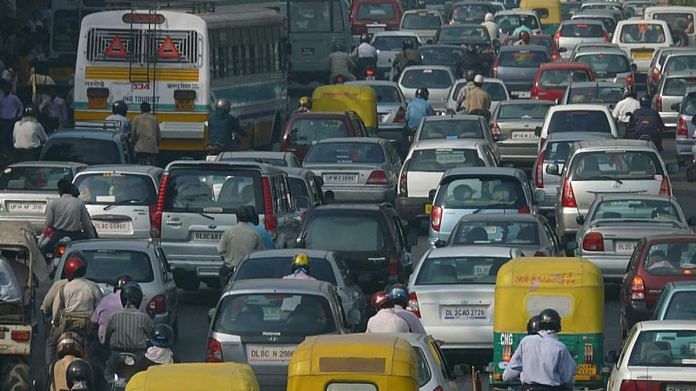Used-car sales are soaring as commuters avoid public transport during the COVID-19 pandemic.
The trend is driving second-hand car retailers to ‘unicorn’ status – privately-held start-ups that are valued at more than $1 billion.
In India, where COVID-19 infections have now surpassed nine million, online used-vehicle platform Cars24 has become the country’s newest unicorn after raising £200 million in a funding round.
In Mexico, second-hand car broker Kavak has become the country’s first tech unicorn, with a reported $1.2 billion valuation, after raising new funding from a number of investors.
In the UK, an online car retailer set up 18 months ago, Cazoo, became a unicorn in June after a £25 million funding round.
A backwards trend?
What does this trend mean for global efforts to cut CO2 emissions by encouraging car users onto public transport?
British motoring services company RAC found a ‘seismic shift’ in people’s attitudes to transport in its 2020 Report on Motoring, with reluctance to use public transport in the future at its highest level in almost two decades.
“Even with lower traffic volumes, the pandemic appears to have reinforced the bond between drivers and their cars – with public transport less attractive than ever,” said RAC spokesperson Rod Dennis.
German ride-pooling services company, door2door, is hoping to make public transport a more attractive option going forward. It has designed a smartphone app that connects users to on-demand bus services. The aim is to fill gaps in the public transport network and reduce the number of private cars on the roads.
“During Covid, we got a glimpse of life with less traffic,” said Tom Kirschbaum, co-CEO and founder of door2door, at the World Economic Forum’s inaugural Pioneers of Change Summit last month. “We see many cities internationally where governments are looking at getting cars out of city centres. This goes hand-in-hand with the question of how people get from A to B. You need to invest in traditional public transport, but also more flexible, more enhanced transport to close the mobility gap between, say, cars and subways.”
Shifts in spending habits
Rising sales of used cars reflect how the pandemic is changing consumer behaviour. Management consultancy McKinsey & Company is tracking consumer sentiment across 45 countries, including how COVID-19 is affecting spending. More than two-thirds of its survey respondents have reported changing their shopping habits.
“Consumers across the globe have responded to the crisis and its associated disruption to normal consumer behaviours by trying different shopping behaviours and expressing a high intent (65% or more) to incorporate these behaviours going forward,” McKinsey says.
“Aside from value, convenience and availability are most often cited as top drivers of consumers’ decisions about where to shop, while quality and purpose (desire to support local businesses, for example) are the more important considerations when choosing new brands.”
With most economies in some form of lockdown, the shift to digital persists across countries and categories.
“Food and household categories have seen an average of over 30% growth in online customer base across countries,” McKinsey says.
Victoria Masterson is senior writer, Formative Content.
This article was originally published in the World Economic Forum.
Also read: Ten ways Covid has changed the world economy forever




Putting second hand cars back on road is a regressive tendency, though it sounds like good business for them. We are already paying heavy price for high carbon content by way of increasing temperature, and erratic weather patterns.